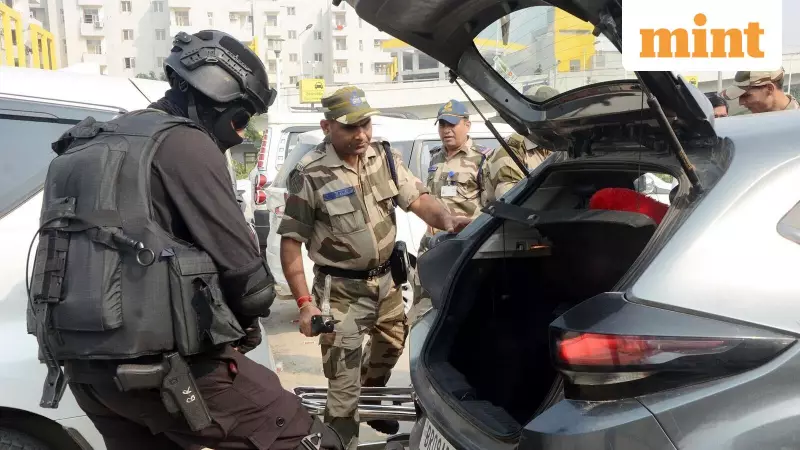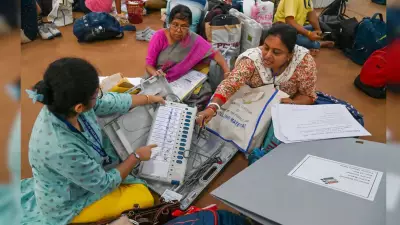
In response to the devastating explosion near Delhi's Red Fort that claimed 13 lives and injured numerous others, the Bureau of Civil Aviation Security (BCAS) has implemented comprehensive security enhancements across all aviation facilities nationwide. The emergency measures, announced on November 10, will remain in effect for three days until November 12 as authorities work to prevent further security breaches.
Immediate Security Enhancements
The aviation watchdog has mandated 100% operational availability of all CCTV systems at airports while ordering intensified surveillance across all civil aviation installations. This includes airports, airstrips, helipads, airfields, and even flying schools and aviation training institutes. The BCAS notification explicitly cited the recent blast in New Delhi and the "surcharged security scenario" as the driving force behind these precautionary measures.
Among the most significant directives is the compulsory implementation of 100% Secondary Ladder Point Checking (SLPC) for all flights at every airport. This additional security layer ensures thorough inspection of aircraft before departure. The bureau has also emphasized the need for comprehensive scrutiny of Passenger Name Records (PNR), passenger manifests, and cargo documentation.
Comprehensive Security Protocols
Security personnel have been instructed to conduct intensive naka checking at terminal approaches, installations, and parking areas. Additional measures include enhanced monitoring of non-conventional aerial platforms such as drones, microlite aircraft, paragliders, and unmanned aerial systems (UAS). The BCAS has specifically highlighted the need for strict vigilance regarding flights, helicopters, and drones operating in the Delhi NCR region.
Aircraft operators must deploy extra security guards on all flights, with state police and special forces providing support to Aviation Security Group (ASG) and Airport Security Units (APSU). Quick Response Teams (QRT) have been positioned at all airports, with regular rehearsals and patrols to ensure readiness for any emergency situation.
Cargo and Access Control Measures
The security directive includes rigorous cargo screening protocols, requiring physical inspection of consignments to detect potential Improvised Explosive Devices (IEDs), Incendiary Improvised Devices (IIDs), and prohibited items. Authorities have been instructed to apply multiple screening methods, including multi-view X-rays, explosive trace detection, and enhanced physical searches, particularly for shipments originating from high-risk areas.
Access control points will see significantly enhanced security, with thorough ID verification for both passengers and staff entering airport premises. Random baggage checks before terminal entry and intensified monitoring through In-Line Baggage Handling Systems (ILBHS) form part of the comprehensive security overhaul. The BCAS has urged all stakeholders to strictly adhere to these measures during the three-day high-alert period.





